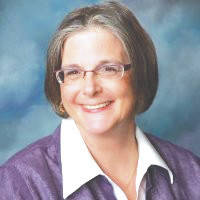
As people get older unwanted changes occur to the body. Wrinkles appear where smooth skin once was. Pants get longer because height gets shorter. Gray hair shows up almost overnight and for some people, hair just disappears.
The gastrointestinal system also changes with age, we just can’t see it. With each passing birthday, internal organs are affected by years of use and/or abuse. We think that since we can’t see our mouth to rectum route that it is as healthy as the day we were born. This is not true.
Oral upkeep is very important with aging. Teeth and gum problems are magnified as a person gets older. Normal wear and tear in the mouth grind down the teeth and cause the enamel to thin. As a person gets older it is even more important to brush and floss daily to keep bacteria from attacking the tissues in the mouth and causing serious damage or loss.
An elderly person without the healthy habit of brushing and flossing daily cause teeth and gums to suffer. An annual dental visit is invaluable for keeping a healthy smile. Talk to your dentist about the value of avoiding dental problems in the golden years.
The ability to chew and swallow is affected by the condition of the mouth, as well as, the muscles of the esophagus. Swallowing ability is often affected by age and certain medical conditions. Once foods reach the stomach the number of digestive juices available to breakdown food declines with years of use. Immunities from harmful bacteria decline and the elderly are at a higher risk for foodborne illnesses.
The ability to absorb nutrients in the small intestine deteriorates. The time that it takes for food to travel through the 20 to 30 feet of the gastrointestinal system varies also. Age, medications, disease and a person’s activity level affect how well food is absorbed in the intestines. Malabsorption of nutrients is often an underlying cause of certain diseases.
Many older people refuse to drink fluids because they have weakened urinary muscles that cause multiple trips to the restroom. Many take a medication that increases these trips. Food has a more difficult time moving through the GI tract without enough fluid. Feeling thirsty or indigestion are clues to indicate that more fluid is needed to keep a body functioning. Drinking water or another non-caffeinated, non-caloric fluid rehydrate the gastrointestinal tract to keep things moving.
Speaking of moving, constipation is a common issue with the elderly. As muscles tire and weaken with age, the movement of the lower bowel slows. Inadequate fiber because chewing becomes more difficult and less fluid because of multiple restroom trips adds to the problem. These issues can create a major issue with elimination.
Staying active, limiting sitting time, and drinking enough fluid can stimulate an aging gastrointestinal system. Belly laughs are internal gymnastics and help to keep things moving. Go take a walk with a bottle of water and a friend who makes you laugh.


